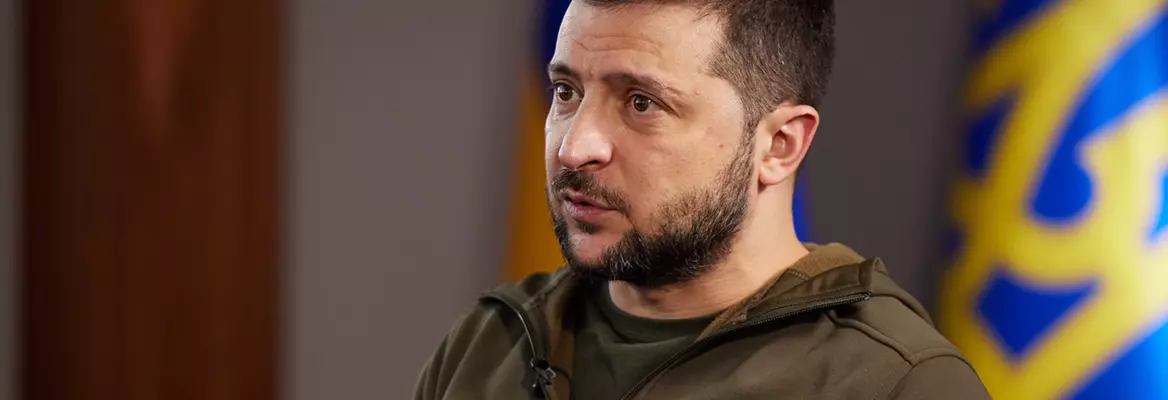The actions of President Zelensky following the invasion of Ukraine exemplify a free act. In this article, Timothy Snyder recounts his meeting with President Zelensky shortly after Russia launched its full-scale invasion of Ukraine, and Snyder explores the philosophical implications of Zelensky’s decision to stay in Kyiv as Russian troops marched on the Ukrainian capital. President Zelenksy did not run. He stayed. And did so freely.
Aaron James Wendland: It is an honor to introduce Timothy Snyder. Timothy is Richard C. Levin Professor of History at Yale University. He is the author of Nationalism, Marxism, and Modern Central Europe, The Reconstruction of Nations: Poland, Ukraine, Lithuania, Belarus, 1569-1999, Bloodlands: Europe Between Hitler and Stalin, On Tyranny: Twenty Lessons from the Twentieth Century, and The Road to Unfreedom: Russia, Europe, and America. Snyder’s work has been translated into forty languages, he has received state orders from Estonia, Lithuania, and Poland, and he is the winner of the Hannah Arendt Prize in Political Thought.
Timothy Snyder: The subject that I have chosen for myself is thinking about freedom in wartime Ukraine. The basis for this title is a conference that I ran together with some friends and colleagues in 2014, just as the Russian invasion of Ukraine began, the first Russian invasion in spring of 2014. I brought people from North America and Europe to Kyiv and ran a conference called ‘Thinking Together’. Although that’s a very simple idea, I like to think it’s a useful one. And when I speak about philosophy in Ukraine, what I’m going to be doing is not explaining how philosophy might be applied to Ukraine, but instead I will be thinking together with Ukrainians and with others about what I take to be the central subject of this conflict, which is freedom.
That said, I’m very glad to be here together with Margaret Atwood, my Ukrainian friends and colleagues, Volodymyr Yermolenko and Mychailo Wynnyckyj, and I’m very glad to be here together with philosophers. I understand that the general framework within which we’re supposed to talk is: ‘What Good is Philosophy?’. I’m going to be aiming for something slightly different: namely, how might we think better or how might philosophy be better if we think together during this war.
___
The two words are ‘президент тут’, which means ‘the President is here’.
___
My subject is freedom, and my method is going to be very simple. I’m going to begin from what the philosophers or other colleagues might call a speech act. I’m going to begin from an utterance of two words and I’m going to think together with the person who uttered those two words. My subject is going to be freedom and I’m going to break it down into four parts, freedom and speech, freedom and risk, freedom and obligation, and freedom and security.
___
I want to treat that act of President Zelensky coming out of his office, going onto the street, and filming a selfie at the beginning of this invasion as a paradigmatic act of free speech.
___





















Join the conversation